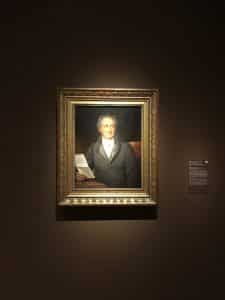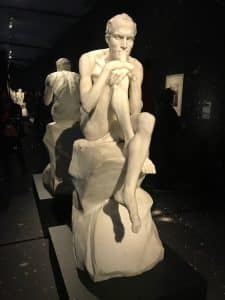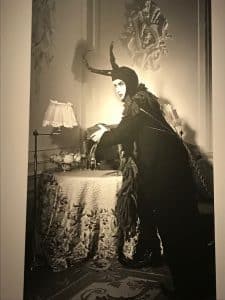Goethe’s Faust: The Devil in Disguise

One of the greatest literary works. Current like never before
The tragic play ‘Faust’ von Johann Wolfgang von Goethe was first published at the beginning of the 19th Century. It takes place around 1500. Europe was slowly shedding the chains of the Middle Ages. Scholarship and science were gaining ground and the Church was no longer the only authority on the meaning of life. The play was written two hundred years ago and takes place at the turn of the 15th Century and yet it seems to me that we are still preoccupied by the same questions, the same uncertainties; we still have the same yearnings.
Seducer and Seduced
Faust is a scholar and a seeker. He strives for more knowledge, needs more time to study. In the end he is willing to sell his soul for a promise of life eternal and omniscience. He falls prey to the Devil’s seduction. He, in his turn is also a seducer with little respect of other people’s feelings, in fact for other people’s lives. The drama is all about love and power and entanglement with evil. It is much about trying to overcome our earthly limitations, without considering the costs.
The Devil is in Our Everyday Life
Are we not all Faust at times? We are also seekers and we are so often willing to take things at their face value. We shut our eyes to all that is inconvenient, to all that might cause us pain, even if others are harmed through our thoughtlessness. We compromise and make deals; not so much with the Devil, more likely with ourselves. This is not surprising because our daily life is often devilish, and we don’t even notice that our routine and habits decide about how we cope. We are playing roles that society imposes on us, and which we blindly accept.
There is Hope for us yet
This is not so different to how Dr. Faust acts out his life. We allow ourselves to be seduced, if only we are promised eternal youth and gratification. The sad thing is, that we often, do not even realize that we are being seduced. We are not aware of who or what is manipulating us. Despite the similarities and thanks to the lessons we can learn from ‘Faust’, there is hope for us yet. Thanks to huge advances in neuroscience, we have more knowledge about how our minds work. We also have the wisdom of ancient and modern philosophers at our fingertips. We can reflect about ourselves, our behaviour, our thoughts and can learn from past mistakes – our own and those made by others throughout history. We can then act more critically and more ethically, and make a pact with ourselves only, to live flourishing lives.
An Event on the Topic in Munich:
Du bist Faust – an Exhibition – Kunsthalle, Munich
Street Philosophy offers an exceptional event – 4th July 2018
All details under: Street Philosophy
Faust – in Art and in Philosophy: a Guided Tour through the Exhibition with the Curator Laura Sanchez Serrano, and the Philosophical Background to Goethe’s Drama, explained by the Philosopher, Dr. Celina von Bezold.

CultureAndCream Author from Munich
Culture means traveling and literature and art, but also philosophy. Foreing countries, beautiful books, exciting arts opens to us horizons. We need philosophy more than ever in everyday life to meet other cultures with open hearts and become aware that we are all human. We may come from different cultures but we all want to know what the meaning of life is. The vision of our company Street Philosophy is to bring a positive idea of change in society.





